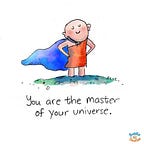Why Sir David Attenborough is Wrong
Unpacking our solution-obsession
Don’t get in a knot, I love Sir David Attenborough. And I admire his life-work trying to help nature — and ourselves. But I have a bone to pick with these environmental-knights-in-shining-armor.
The usual narrative
In Netflix's: A life on our planet, Attenborough outlines our dismal ecological, climatic, and political trajectory. Then, in the last 10 minutes: an elevator pitch (with uplifting music in background) for renewable energy, population stabilization, rewilding (see photo below), “sustainable” development and vegetarianism. These are supplemented by examples of happy-news solar-panel-stories and stop-fishing campaigns.
Great. Good. Go for it.
I got goosebumps too while watching this, and nodded my head when my girlfriend said aloud “let’s do something!” But are these solutions, or symptoms? For humanity to implement these changes requires political will and a societal overhaul. This is a deep-down transition we’re talking about! Not an online petition.
The revolution needs more than inspiration, activism, and innovation; we need a reorientation in human values, and an ethical framework to act from.
The take home message: Target the roots — target human values. If you want to make a positive impact on our collective future:
- Work on how we educate youth (conditioning).
2. Strive to better train and understand your mind (mindfulness).
3. Weave ethics into our society (morality).
Al Gore…
David Attenborough did a football-field better than Al Gore’s Inconvenient Truth in which after a one and a half hour power-point, he told us to turn off light-bulbs and drive electric cars. What a corporate hand-job! His solutions made us feel like recycling milk jugs was going to halt Suncor and Shell from exploiting Canada’s Tar sands.
We need concrete actions encompassing all levels of industry and society. This can only be done through root-level behavior change.
Be critical
Our life is so precious; let’s not waste time. There are many documentaries, campaigns, and calls for action, it’s hard to know where to put our effort. When consuming content, use awareness — is this information supported by facts? Does the scale of the solution meet the size of the issue? Who made this, and who are they funded by? Is it realistic?
I spent my 20’s protesting pipelines (see photo below), food waste, and old-growth logging. Basically I held signs in front of buildings with nobody home.
It was repetitive. The signs changed, the system didn’t. Corporations, projects, and political parties would come and go, but the foundation supporting them remained untouched.
Alternative energy:
A good example of how we get lulled into a false sense of hope (and inaction) is “alternative” energy. I’m tired of people saying “Well, the sun and wind are free!” Yes, but cobalt, copper, manganese and nickel aren’t; we will require new mines to support our precious windmills and solar farms. And what about power storage? Many people think once you set-up a wind turbine it lasts forever — no strings attached. They last 25 years. That’s it! Is that our sustainable-silver-bullet?
Momentum and innovations will come as we move towards “renewable energy”, but the elephant-in-the room is consumption, and capitalism.
Can we find a “solution” while immersed in the same societal framework creating the problem? “Alternative” energy projects in production are run by oil and gas corporations. Do we trust them?
Make sacrifices
Things will get spicy in the next 10–50 years; prepare for it. The best way to do this is by getting acquainted with discomfort. The disasters we see in developing countries will make their way up the privilege ladder.
What to do?
By all means, become a vegetarian, protest at climate rallies, and stop buying farmed-fish, palm oil, and anything double-wrapped in plastic. But realize the war we are fighting is one of human values. What you believe in matters. It is part of the human-fabric shaping our world and future. Take advantage of your privilege and seek answers outside the box. Be bigger than the small bubble you call home — it’s bound to pop.
No solution
I guess my real bone is the solution-narrative we obsess over. Do we really need a solution? This is a process, and we’re all in this together. Problems are here to learn valuable things about who we are — they are intertwined with our evolution as a species.
Crisis and disaster are key mechanisms in evolution.
I offer no solution; only ideas to marinate. Best of luck with the coming years.
I hope you are healthy, and happy.
Your pal,
David
